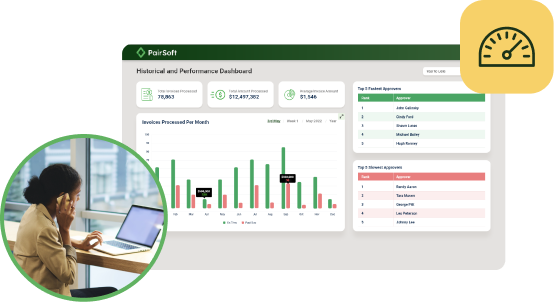
Wadih Pazos
Wadih founded both PairSoft and PaperSave. He is an avid technologist who specializes in streamlining operations and maximizing productivity.
View all posts by Wadih PazosWadih Pazos

When proclaiming the many advantages of going electronic and eschewing paper in the office, a lot of company leaders tend to focus on the benefits that can be immediately obtained. For instance, right away, the business no longer has to invest in paper reams or ink. Plus, electronic invoices can make things like legalities and instant gratification so much easier.
However, the move to go paperless shouldn’t be all about the elements that can be achieved immediately after the clunky printers and file cabinets are thrown out. In fact, there are a number of other advantages that should be cited as major reasons to make this move that those in it for the long haul can hope to enjoy. Perhaps chief among them is attracting the workforce of the future to the company and building up a younger staff to take over some day.
Because the youth of today is extremely tech-savvy, a number of younger Americans have already gone partially paperless in their own lives without actually realizing it or explicitly meaning to. According to Credit Union Times, citing information from The Money Mindset Index published by Western Union Bill Payments, one in every five individuals considered to be in Generation Y has never written a paper check. Instead, they rely primarily on electronic channels.
Nearly two-thirds of people within this generation pay at least half of all of their bills online, and 55 percent of those surveyed plan to do so with more frequency in the next six months. Another 74 percent review their bank statements on the Internet, not incorporating paper into the mix at all.
Those counted as being a part of Generation Y seem to rather complete their tasks online to begin with, which means that they’re likely to be great fits within a paperless office.
The growing influence of digital workflow in younger populations is also evidenced by the fact that a number of U.S. schools are beginning to implement curricula that wholly consist of learning on electronic devices.
The Outer Banks Voice reported that North Carolina’s Dare County educators will be teaching students via laptops come September, rather than investing in traditional books and paper resources.
“We want to prepare our student for their future, not our past,” Superintendent of Schools Sue Burgess told the newspaper. “Computers will not replace teachers but will be a tool for teachers and students.”
The simple fact shown by the results of the Western Union survey intimate that younger Americans don’t want to deal with paper and will increasingly factor it out of their lives as time goes on. It can be assumed, then, that these figures will continue to grow for even younger generations, eventually resulting in the need for offices nationwide to be electronic, because the workforce will be unfamiliar with anything else.
This means that companies need to start considering making the switch to digital if they haven’t yet in order to stay current. The workforce itself is evolving, and companies cannot afford to either have to make last minute changes when this hits critical mass or shut their doors because they have become outdated.


Many organizations start with manual receipt handling, fragmented card feeds and slow AP processes. Implement AI agents to auto-capture receipts, route approvals, enable punch-out buys and post to the ERP.
Result: faster batching, fewer errors and cost savings. “This saves us hours every month.”
Many organizations face slow, paper-heavy AP and fragmented procurement that waste time and inflate costs. AI Agents can automate approvals, PO matching and record sync to improve speed, accuracy and control. Client quote: “It freed up hours and made our process reliable.”
Operational drag and rising costs slow growth: teams waste time on manual tasks, misaligned priorities and opaque processes. AI Agents help automate routine work and coordinate actions across teams. “We’ve lost time to repeats and handoffs,” says a typical client.
Companies struggle with manual procurement, fragmented approvals, and costly integrations that slow growth and obscure spend. Our AI Agents streamline requisitions, POs, and invoice matching to cut manual work and improve visibility. “We were wasting time and missing insights,” says a client.

Many teams start with fragmented PO/AP systems, manual matching and delayed financial reporting. Deploying AI agents to automate PO checks, real-time encumbrance tracking and invoice matching reduces processing time and errors, delivering live budgets and faster closes. “Finally, we can see current balances and approve instantly.”
Many companies juggle growing invoice volumes and legacy systems. They struggle with manual processes, compliance gaps and limited headcount. Our AI Agents automate integrations, enforce rules and surface exceptions. The typical outcome: faster closes and measurable ROI. “We stopped chasing invoices.”